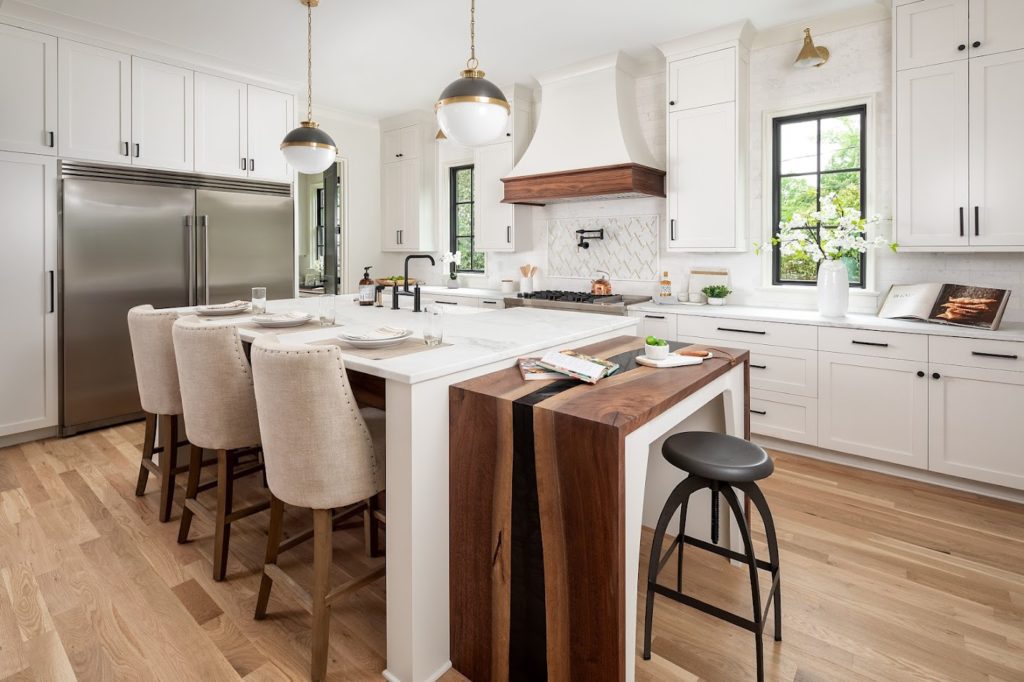While many people have grown fond of custom wood countertops, those who want something even more unique have begun utilizing a live edge + resin countertop style.
This style of countertop is perfect for those who love natural and organic styles in the kitchen and home and appreciate the unique character each piece of wood offers. It also allows a pop of color to add flair and highlight the organic look of natural wood.

What Are Live Edge + Resin Countertops?
Live edge countertops offer a style of countertop which has a natural edge on the wood as opposed to a straight edge which is usually cut and sanded smooth.
This style is gaining in popularity because it shows the unique characteristics of the wood such as knots, burls and other naturally occurring features.
When this live edge is combined with a colorful resin, the live edge can take on a more unique beauty and it becomes preserved with that natural edge of the wood while adding a glossy, durable finish fit for daily use.
The final product is a one-of-a-kind countertop which shows the natural beauty of the wood, a splash of color from the resin, and all the while providing durability, utility and resistance to stains you would expect from traditional countertops.
How Are They Made?
The process of creating a live edge + resin countertop involves taking a raw piece of wood to begin with—very minimal pieces are trimmed away to keep the most natural look and feel.
Next, the piece of wood will be cut to the proper size for the countertop. If the countertop will be a waterfall style, it will be trimmed to have both sides cascading down, as well, and lined up appropriately to meet the corners and floor.
The next step is choosing the color of resin you want. Once chosen, the resin is added to the countertop by first filling the edges, holes and knots. Finally, the resin covers the entire piece of wood and is smoothed out across the entire surface.
Once the resin has cured, the last step is to sand, smooth and polish the resin to a glossy finish, then install it in the kitchen.
Do They Require Extra Maintenance?
These types of countertops do require an extra amount of maintenance. While they should never require any recoating, regular polishing can help keep the durability and glossy finish looking its best.
Because of regular use, small scratches, nicks, and other minor imperfections can allow water or other moisture to rest on the surface. Polishing enables you to keep these foreign substances clear and the surface smooth.
After the first few weeks, you should only need to maintain the countertop approximately once per month.








